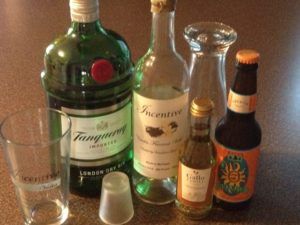
BYCU
I hung out at Central Michigan University quite a bit when I went to school at Alma College in the 1980s. These days, I only get back there when I go to Soaring Eagle, Michigan's first indian casino and one of the few in the lower peninsula that allow my 18-year-old children to attend with me.
For some reason, CMU has been a "whipping boy" of one of my favorite writers, Joseph Epstein, who often refers to it when lamenting the "college is for everyone" culture we've lapsed into and, in general, the degradingly-laughable fall of college academics in general. Central isn't a bad school by any means, but it is a degree factory, just like the vast majority of colleges these days. There's no more shame in attending CMU than there is in attending any of the state universities that were established through land grants.
Here's how Wikipedia explains how land grant colleges started: "The mission of these institutions as set forth in the 1862 Act is to focus on the teaching of practical agriculture, science, military science and engineering (though "without excluding ... classical studies"), as a response to the industrial revolution and changing social class. This mission was in contrast to the historic practice of higher education to focus on an abstract liberal arts curriculum."
Such a mission obviously doesn't apply just to land-grant colleges any more. Even my alma mater, the University of Michigan, a blue-blood among public universities, caters much to this "practical" education, although there definitely seems to be a "race to bottom" of sorts going on in this area that the blue bloods are resisting. "Colleges" are offering degrees in all sorts of things that would seem more vocational than education. A college in Michigan, for instance, teaches truck driving (I've seen the trucks on the highways). Welding is taught at community colleges. Michigan State offers one of the nation's best programs in (I think I have this correct) "packaging science," which, I'm told, is the pursuit of putting things in a box so they don't break and, I'm also told, is far more rigorous than common experience would indicate.
Are such things a "fall" from "agriculture, science, military science and engineering," or merely a logical extension in an economy that grows more diverse every decade? Beats me.
But I am happy to see this educational/vocational devolution has reached into the area of alcohol. This item appeared in my local newspaper recently:
Central Michigan University in Mount Pleasant this week announced plans to launch the program in fall 2015, aimed particularly at supporting and boosting the state's fast-growing craft brewing industry, now a $1 billion-plus annual business. . . .
Similar programs operate at the University of California's Davis and San Diego campuses and at Oregon State and Central Washington universities.
I gotta believe that I'd rather drink beer from a guy who learned it the old-fashioned way: in his garage, experimenting for hours with his friends, the FM radio playing in the background. But as far as vocational studies go, I suspect I'll reap benefit from this new educational marketing angle.









